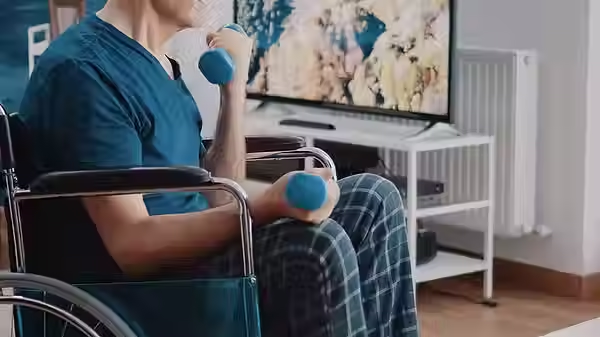

Stem Cell Therapy for Muscular Dystrophy
Stem cell therapy for muscular dystrophy supports muscle regeneration and enhances mobility
Stem Cell Therapy for Muscular Dystrophy
Muscular dystrophy (MD) is a group of genetic disorders characterized by progressive muscle weakness and muscle loss. There are around 30 variations, including nine main types and their subtypes, all caused by defects in muscle proteins. These defects lead to the degeneration of muscle cells and tissues, which are gradually replaced by fat and fibrotic tissue.
The onset of MD can vary significantly, with symptoms appearing in early childhood, adolescence, or even as late as the mid to late thirties. Despite these differences, all forms of MD share similar features, ranging from mild to severe muscle impairment.
Muscular dystrophy is not limited to the muscles alone. Many types are multisystem disorders, affecting the cardiovascular system, gastrointestinal tract, nervous system, endocrine glands, vision, and even brain function. Unlike many other conditions, MD is rooted in a person’s genetic makeup, and because it is encoded in the DNA, there is currently no definitive cure available.

How Is Our Stem Cell Therapy Transplantation for Muscular Dystrophy Performed in Istanbul?
Our Muscular Dystrophy (MD) treatment utilizes the regenerative potential of mesenchymal stem cells (MSCs) to address the progressive muscle weakness and degeneration associated with this condition. This advanced therapy is designed to enhance muscle repair and function by delivering high-quality MSCs directly to the affected tissues. These stem cells have the ability to differentiate into various cell types and secrete bioactive molecules that stimulate tissue regeneration.
How the Treatment Works
The MSCs used in our protocol are sourced allogeneically and preserved under strict cryopreservation methods, ensuring a cell viability rate of over 97%. During transplantation, the cells are administered through targeted injections into areas most affected by muscle degeneration, combined with an intravenous infusion to provide systemic support. In some cases, treatment may also include Platelet-Rich Plasma (PRP) therapy, which supplies additional growth factors to enhance tissue healing, improve cell survival, and strengthen the therapeutic effects of MSCs within the damaged muscle.
Expected Benefits
MSC therapy offers a promising approach to slowing disease progression and improving muscle function in MD patients by:
-
Reducing Inflammation: MSCs’ anti-inflammatory properties help decrease chronic muscle inflammation, a frequent complication in MD.
-
Promoting Muscle Repair: Through differentiation into muscle and supportive cells, MSCs assist in repairing and regenerating damaged muscle fibers.
-
Enhancing Cellular Communication: By releasing exosomes and cytokines, MSCs improve intercellular signaling, fostering healthier tissue regeneration.
-
Supporting Vascularization: MSCs stimulate the formation of new blood vessels, improving oxygen and nutrient supply to muscles, which is essential for recovery and strength.
Safety and Standards
Our therapy is carried out under the highest safety and quality standards. All procedures comply with Good Manufacturing Practice (GMP) as well as national and international health regulations. The MSCs we use are fully compliant with FDA guidelines, the American Association of Tissue Banks (AATB), and Turkish Health Law, ensuring both patient safety and treatment effectiveness.
Candidate Suitability
Not every MD patient is an immediate candidate for MSC therapy. Each case is carefully evaluated by our medical team, taking into account medical history, current health condition, and the specific subtype of MD. This thorough assessment ensures that MSC therapy is a suitable and beneficial option with the potential to deliver meaningful improvements in quality of life.
This innovative MSC-based treatment represents one of the most advanced non-surgical options currently available for managing Muscular Dystrophy. By aiming to improve mobility, alleviate symptoms, and enhance daily functioning, it offers new hope for patients and their families.







